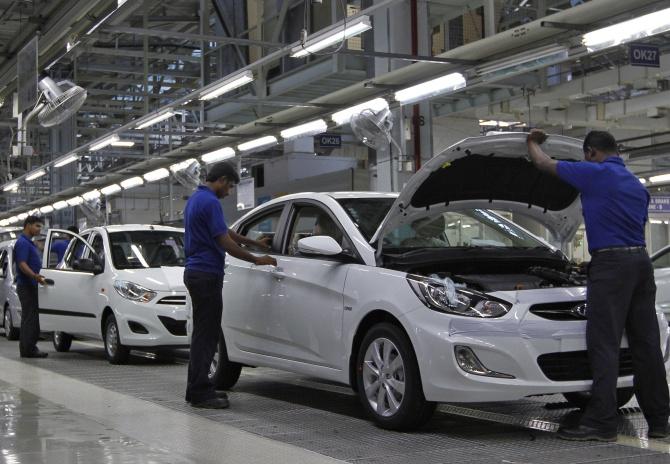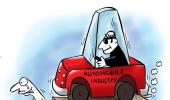An analysis of past 20 years’ demand cycles done by Edelweiss Securities indicates that the auto sector is currently in the middle of a down cycle. Volume recovery, they say, is unlikely to be as sharp as in the past, unless there is strong fiscal support.

Falling sales, patchy monsoon thus far that may further have a bearing on demand going ahead and the overall slowdown in the economy has made analysts cautious on the consumption segment, especially the automobiles.
And if reports are to be believed, the recovery in the auto segment is still far away.
In the first quarter of financial year 2019 – 20 (Q1FY20), automobile sales witnessed the sharpest decline of 10.5 per cent year on year (y-o-y) in the last five years on back of price hikes in passenger vehicles and two wheeler segments due to new safety norms starting April 1, 2019; higher insurance costs, liquidity crisis in the non-bank finance companies (NBFCs).
That apart, increased load carrying capacity for medium and heavy commercial vehicles (M&HCVs) led to high inventories at retail (dealers) level causing slow movement in wholesale movement of vehicles, analysts say.
An analysis of past 20 years’ demand cycles done by Edelweiss Securities indicates that the auto sector is currently in the middle of a down cycle. Volume recovery, they say, is unlikely to be as sharp as in the past, unless there is strong fiscal support.
“The current slowdown is different from previous ones. First, it’s driven by domestic factors rather than global events; second, there is stiff competition from growing organised pre-owned vehicles market; third, the slowdown is characterised by significantly higher margin pressure; and is led by prohibitive jump in vehicle cost,” wrote Chirag Shah and Jay Mehta of Edelweiss in a recent report.
Historically, down-cycles last an average of 7-11 quarters, say analysts at Jefferies, but significant variation around these averages, with a range of 4-22 quarters, makes predicting timing of a recovery tricky. Implementation of BS-6 norms from April 1, 2020 adds to the complexity this time, they add.
At the bourses, auto stocks have been taking it on their chin with the Nifty Auto index hitting a three-year low on Friday. Nifty Auto index, the largest loser among sectoral indices, was down 2.5 per cent at 7,248 levels, as compared to 1.3 per cent decline in Nifty 50 index. The Nifty Auto and S&P BSE Auto index were trading at their lowest level since March 1, 2016.
The correction since September-December, 2017, according to analysts at Jefferies, has been in two parts. First, the initial six-10 months was driven by valuation de-rating while, over last 9-12 months earnings downgrades has been the key driver. They expect earnings cuts to continue going ahead.
Among stocks, Maruti Suzuki India (MSIL), Mahindra & Mahindra (M&M), TVS Motor Company, Eicher Motors and Force Motors from the auto pack; and Bosch, Exide Industries and Endurance Technologies from auto ancillary segment hit their respective multi-year lows on Friday.
Thus far in the calendar year 2019, auto index slipped 21 per cent, against 5 per cent rise in the benchmark index. M&M, Motherson Sumi Systems, TVS Motor Company, Exide Industries, Escorts, MSIL, Eicher Motors, Hero MotoCorp, Bosch and Ashok Leyland have seen market value erosion of more than 22 per cent during the period.
“Within two-wheelers, we downgrade Eicher to 'hold'; maintain 'hold' rating on Hero MotoCorp. TVS is likely to continue outperforming industry but could still underperform expectations. We upgrade M&M to 'buy' and also maintain 'buy' on MSIL given more advanced passenger vehicle down-cycle, lower BS – 6 risks and high-quality franchise,” says Arya Sen, an analyst tracking the sector at Jefferies.












 © 2025
© 2025